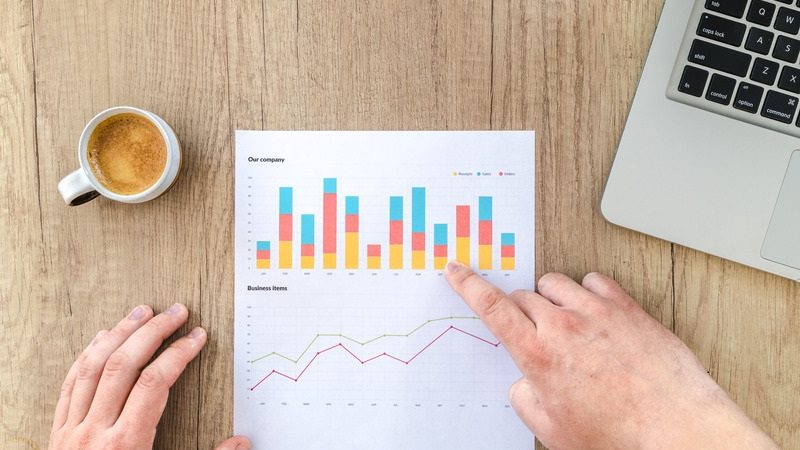Organisations are increasingly using and collecting larger amounts of data during their everyday operations. No matter what role you are doing in future, you are likely to base your decisions on data.
So, what does this mean if you studied a non-tech degree?
Susan Bird, Careers Consultant, has summarised some great insights from the panel of speakers at our “Could I work with data” talk which was part of the Careers Fair in October 2019. Our inspiring panellists were from arts, humanities and social science degrees:
Rachael Thomas (Law graduate) – Strategy & Innovation, RBS (formerly at Accenture)
- Rachel’s role in data at Accenture was more strategy and decision-making.
- At Accenture, they recruited tech and non-tech graduates into data roles providing a data analytics service to other departments e.g. customer push notifications.
- Described her current role at RBS as “translating the data”.
- They have staff doing the highly tech data/science algorithms but Rachel’s role requires making sense of the data to answer questions and solve problems.
Georgina Harris (Spanish & Politics graduate) – Project Administrator, ChangeWorks
- Uses customer data to target customers’ energy efficiency needs, personalising the service.
- Wished she had undertaken the optional module on data analysis at university.
- Encouraged students to take advantage of optional data modules as part of their degree programme or as an extra e.g. through LinkedIn Learning.
Rob Sanders (Economics graduate) – Market Insights & Analytics, Twitter
- Data analyst with a broad remit; works with focus groups, analysing sentiment outcomes, looks at text data e.g. Twitter comments in the 1000s. Also, looks at campaigns, audience insights, advert efficiency and human behaviours.
- Massive data analysis is done by data scientists.
- Said it’s good to offer a tech focus plus business awareness.
- Encouraged students to learn excel, look at open source, introduction to R and data upskill to some degree.
Meredith Adams (MA Geography graduate, 2016) – Diversity & Inclusion Advisor, Standard Life Aberdeen
- Never considered herself a “numbers person” and ruled out lots of environmental roles e.g. Geographic Information Systems (GIS) modeller, analyst.
- Struggled with quantitative research methods course – was afraid of numbers and statistics test. Asked peers for help and watched YouTube videos.
- Loves her role in people data e.g. use of data during change to help redesign organisation, gender pay gap reporting.
- Has a team of in-house technical data people who support her- the trick is knowing enough! Meredith asked to attend intermediate excel training “so when I look at a spreadsheet I can ask – does that look right compared to the last quarter?”
Wendy Hisbent, (Scottish History graduate, 2013) – Political Researcher
- As a political/constituency researcher for both the Scottish Parliament and the House of Commons she analysed data e.g. how did specific initiatives impact on fuel poverty?
- Don’t blag it. Say if you don’t know how to use something, and teach yourself in bite size chunks e.g. 10 minutes a day.
- Data is both qualitative and quantitative, use both (from focus groups).
Jilly Whiteford (LLB Law Honours degree, 2012) – Account Manager, Procter & Gamble
- So much data in her role; on her first working day Jilly was presented with an excel spreadsheet with 3000 products and sales figures for 365 days!
- She had to understand how to use this data to aid decision making e.g. who are our shoppers? What is the best way to reach them? What are they buying and when?
- Tracks monthly budget data and profit & loss per product – has developed her excel skills hugely
- Biggest piece of advice- don’t be intimidated by data. Focus on the problem you are trying to solve and then tell a story with the key themes; what is the narrative?
Themes from panellists
- Don’t rule out applying for a role because you think it is too numbers heavy and you are not a numbers person.
- Appreciate and recognise the skills you’ve got.
- Data can be a force for social good e.g. Wendy’s role at The Scottish Government. Wendy looked for patterns and themes in fuel poverty data e.g. how many are affected? How can we help? How does data inform the campaign messages?
- You don’t have to be very technical to work with data. Lots of roles won’t require you to do the number crunching. It’s more about making decisions/arguments based on information you have.
- Critical thinking is a key skill – roles may involve critical evaluation of the data, building a narrative and an argument e.g. what might it tell us? What is the story? Non tech people can be good at this. It’s about coming up with decisions, actions and plans based on the data.
- Employers are interested in evidence of curiosity/self–motivation.
- In future, every role will have some exposure to data, so being comfortable now will give you the edge. Take the extra step to learn, be flexible and you will stand out.
Find out more about working in data by attending our Careers in Tech and Data Fair 2020, Wednesday 12th February, 12.30 – 4pm, McEwan Hall.
(Image credit: Goumbik on Pixabay)



[…] excellent article from my colleague at Edinburgh who shares insights from some of their graduates about what it means […]